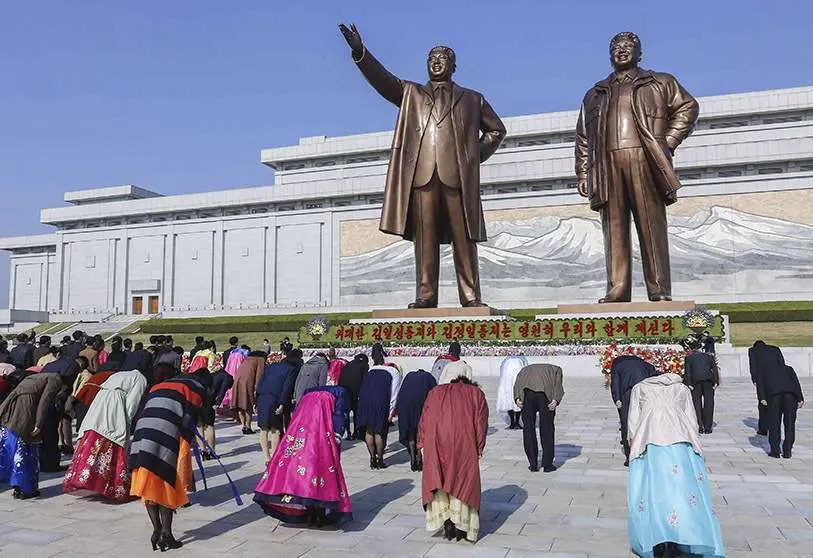A strategy for North Korea

North Korea is a living fossil, as if a dinosaur from the Cretaceous appeared in the 21st century, a relentless communist dictatorship personified in a family saga that has turned the country into a gulag of starving people with no contact with the outside world, because its isolation has intensified with the self-imposed total closure of borders when last year the COVID-19 pandemic broke out. It is like a time capsule. If it survives, it is because it has managed to cross the nuclear threshold at a terrible cost to its battered population, because it has atomic bombs and the missile technology to deliver them remotely, and because this provides it with the necessary dose of fear to guarantee its survival in a world that has continued to change around it. And this political fossil, armed to the teeth, once again launched several missiles on March 25, defying yet another violation of UN Security Council resolutions.
The United States has no idea how to deal with this threat (North Korean missiles could soon reach its shores), nor is it the only country under threat, since neighbouring Japan and South Korea, as well as China and Russia, are in the same position and even closer. In a very short time it has become clear that Kim Jong-un made a mockery of Donald Trump and that the three meetings between the two men did not contribute to better control the Korean arsenals - and even less to reduce them - and that their only consequence was to give the isolated leader a certain legitimacy in the eyes of the world. Kim mocked Trump.
Joe Biden now wants to change the strategy, to find one that is effective and, unlike Donald Trump, he wants to do so with the cooperation of the other four countries mentioned above, a strategy that is not exclusively military and that does not exclude a diplomatic solution to the crisis.
Hence the recent contacts with Tokyo and Seoul, which seem willing to collaborate with the Americans. But this is not enough, for an effective strategy also needs to involve Moscow and Beijing, which is more complicated in the current context of frosty relations between the two countries and the United States, defined by the imposition of sanctions on Russia in response to its cyber-attacks and the treatment of the opposition leader Navalny, and by serious disagreements with China over the classification of the treatment of the Uighurs in Xinjiang province as "genocide", in addition to other trade and political problems over Taiwan and the South China Sea.
Moscow, with a very unpopulated border thousands of kilometres away from Pyongyang, does not seem to feel the danger with the same intensity, has more immediate concerns and probably enjoys Kim causing trouble for the Americans, while China fears the collapse of the North Korean regime that would cause millions of starving refugees to spill over its border, and also fears an eventual reunification of the Korean peninsula under the aegis of the United States. That is why China prefers to tread lightly, even violating the embargo and occasionally giving Pyongyang mouth-to-mouth respite in the form of food and oil (or buying its coal) to avoid the worst. It is more concerned about refugees or Americans on its borders than the nuclearisation of Korea.
China's strategy on North Korea is therefore conservative and based on maintaining the status-quo and a calculated ambiguity that consists of maintaining sufficient leverage over Pyongyang to prevent it from committing serious reckless acts that could lead to US military intervention, to prevent sanctions from collapsing its economy, and to keep hope alive in Washington for a diplomatic solution. It is not easy, but China seems comfortable with the current situation, but it would be very difficult for things to change on the ground without its cooperation.
In light of this reality, Washington may be reconsidering its strategy to stop demanding North Korea's denuclearisation, which seems impossible. This would paradoxically be done by strengthening its military alliances with Japan and South Korea and increasing its military presence in the area, something that would worry Beijing and might encourage it to be more cooperative. What is clear is that the current policy has not yielded results and the US knows, moreover, that Iran is keeping a close eye on what is happening on the Korean peninsula.
Jorge Dezcallar Ambassador of Spain

